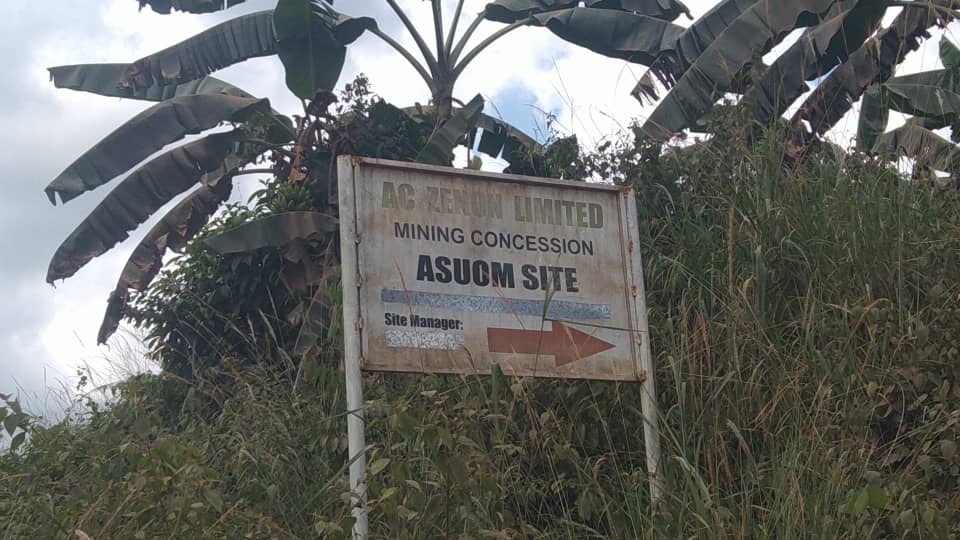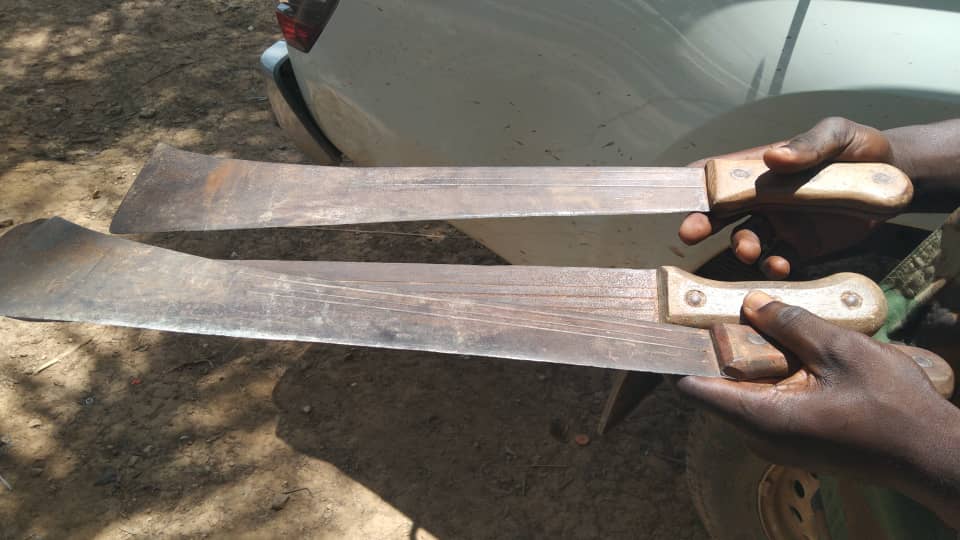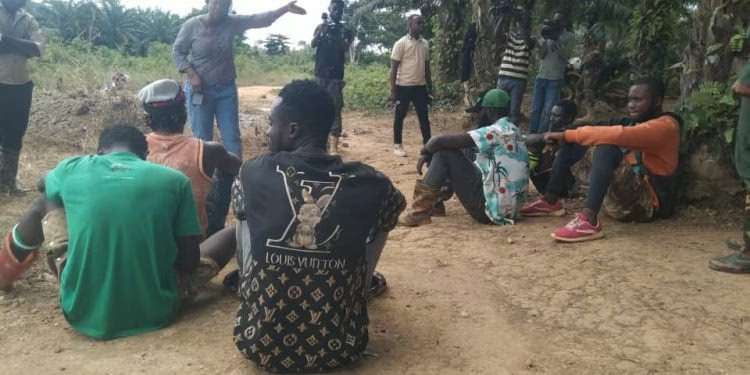A dramatic scene unfolded at the AC Zenon Limited mining site in Asuom, Eastern Region, Ghana, when six armed youth, allegedly led by a self-proclaimed incoming Asafo leader, attempted to disrupt a press engagement. The group, armed with machetes, arrived on tricycles and motorbikes, intent on attacking workers, media personnel, and Minerals Commission officers. However, their plans were swiftly foiled by the company’s security team, who had set up an ambush and promptly disarmed the youth.
The incident has sparked concern about the growing tensions between licensed miners and illegal operators in Ghana. Hajia Amina Tahiru, Chief Executive of AC Zenon Limited, urged the youth not to be exploited for individual selfish interests. She also appealed to the government to safeguard responsible, licensed miners and assist them in combating illegal mining and encroachment.

The allegations of illegal mining activities, commonly known as galamsey, were swiftly refuted by Hajia Tahiru. Officers from the Minerals Commission in Koforidua corroborated the legitimacy of the mining lease issued to AC Zenon Limited in 2022. They attributed the Asuom Kontihene’s bitterness to the company’s refusal to acquiesce to his personal demands, which contradicted the collective community agreement.
This incident highlights the complex issues surrounding mining in Ghana. The country has struggled with land conflicts, environmental degradation, and human rights abuses related to mining. Effective participatory decision-making and coalition-building strategies, as seen in the Upper-West region, could provide valuable lessons for resolving these conflicts.
In the Upper-West region, the Centre for Indigenous Knowledge and Organizational Development (CIKOD) successfully organized consensus-building assemblies, empowering women and traditional leaders to resist mining operations. This grassroots approach led to the creation of biocultural community protocols, recognizing indigenous sovereignty and knowledge.

The Tanchara community’s experience demonstrates the importance of community-led development and traditional authority. However, critics argue that traditional governance systems can be problematic, potentially exacerbating land conflicts and centralizing decision-making.
To address these challenges, it is essential to promote alternative livelihoods, engage youth in decision-making processes, and ensure legal backing for customary law and community protocols. The Upper-West Coalition on Mining, Food, Water, and Sacred Natural Sites serves as a model for connecting affected communities with NGOs and resources.
Ghana’s government must balance economic development with environmental and social responsibility. Protecting licensed miners and combating illegal operations requires effective collaboration with local communities and traditional leaders.
Ultimately, resolving mining-related conflicts in Ghana demands a multifaceted approach, incorporating grassroots participation, traditional knowledge, and government support. By learning from successes and challenges, Ghana can forge a more sustainable and equitable mining sector.
The disarming of the six armed youth at AC Zenon Limited serves as a reminder of the urgent need for collaborative solutions to Ghana’s mining challenges.
